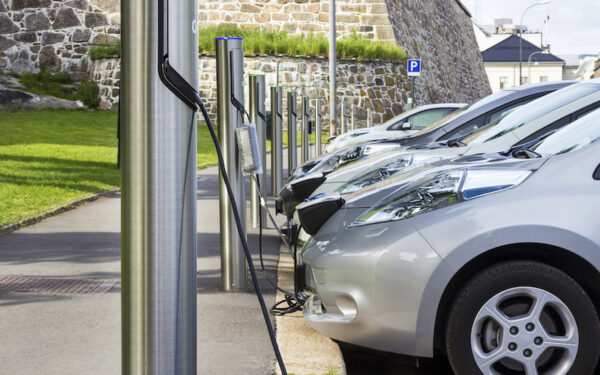
The electricity that powers our homes, appliances, and lives needs to be efficient and sourced from clean energy – for the sake of our health and our wallets. Photo: Shutterstock.
Last month, New Hampshire’s electric utilities announced that they will double their residential rates. This means that a typical household will now pay around $70 extra per month on their electric bill.
As a New Hampshire resident, I’m outraged that my monthly bill will increase so much – and I’m not the only one. The high cost of natural gas, which generates so much of New England’s electricity, is partly to blame for rising electric bills. However, state policy can also greatly impact electricity rates.
Let’s look at how New Hampshire’s energy policies and those of the Sununu administration have played a role in these sharp increases.
States Can Save Money through Energy Efficiency, but New Hampshire Chose Not To
Last year, CLF and our partners supported an ambitious energy efficiency plan developed by New Hampshire’s electric and gas utilities. The plan would have helped families and businesses cut back on their energy use, which would in turn reduce their energy bills, too.
Despite these benefits, the Sununu administration and state legislative leadership opposed the plan. They argued that it would cost the state too much in the form of increased electricity rates for consumers, even though energy efficiency programs reduce electricity bills for most families and businesses. Based in part on the Sununu administration’s opposition, state regulators rejected the plan.
Energy efficiency programs are a tried-and-true strategy to save money on electricity bills. They also help to slash climate-damaging pollution. By optimizing our buildings to use less energy, the New Hampshire plan would have reduced energy costs by over one billion dollars. It also would have cut polluting emissions by an amount equivalent to removing 820,000 passenger vehicles from the road for one year. Without this plan, New Hampshire’s residents won’t get to experience these significant cost savings and environmental benefits.
New Hampshire Supports Expensive Natural Gas, Rather than Reliable Clean Energy
In addition to not supporting energy efficiency, the Sununu administration has supported policies, like new pipeline construction, that make us even more vulnerable to unstable natural gas prices. It has also opposed efforts to increase renewable energy resources in New Hampshire. These decisions have come despite the fact that solar and wind power now costs less or the same as gas – without the added air and carbon pollution.
Increasing renewable energy generation would make us less dependent on price-volatile, polluting natural gas. But the Sununu administration’s opposition to clean energy keeps us shackled to expensive fossil fuels.
And When the State Does Propose Energy Policy, It Falls Short
The Sununu administration’s solution in the face of these high electricity prices is little more than a Band-Aid. Recently, it proposed creating a $60 million fund, which would provide a $100 bill credit to roughly 600,000 residential electric customers across the state.
But that proposed program misses the mark. Yes, it would provide our hardest-hit families with relief from high electricity prices, but only for a few months, at most. Temporary relief is not the answer to this long-term problem.
In contrast, the energy efficiency plan state regulators rejected last year would have helped lower electricity bills for years, not mere months – having a necessary long-lasting impact.
New Hampshire Needs to Catch Up on Energy
Compared to the rest of New England, New Hampshire is trailing behind. Our neighbors in Massachusetts and Maine have adopted ambitious energy efficiency policies that will help reduce families’ energy use and electricity bills, even in the face of high natural gas prices this summer. They have also passed laws that require utilities to purchase an increasing share of power from renewable energy sources. As a result, these states have tools in place to help buffer the impacts from high electricity prices – unlike New Hampshire.
Clearly, state policy can heavily influence electricity costs. The Sununu administration has failed to support clean energy policies for years. Now the chickens have come home to roost in the form of record-high energy bills. And it’s people like you and me who are paying the price.
Rather than wasting money on short-term measures that do nothing to fix the real problem, New Hampshire must advance long-term policy solutions that will reduce our dependence on natural gas. State leaders must also support our transition to a more affordable, clean energy economy.



